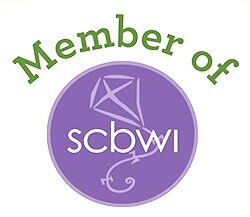So you want to learn how to do magic tricks? Or do you want to be a magician? There’s a difference. Learning the secret of how a trick is done is disappointing. Trust me on that. Wanting to become a magician is much more than learning secrets. In this post, I’ll give a streamlined list of tips on how to get started.
in later posts, I’ll focus on different aspects of performing magic and my philosophy on the craft. Along with a behind the scenes look at the making of my middle grade fantasy series, “The Conjurers”.
Where should one start if they want to become a magician? These days, there’s a lot of answers, but I’ll start at my beginning. First, get yourself a magician Uncle.
Yep, as cliche as it sounds, my uncle was a magician. Not a “pulling a quarter from your ear” kind of magic uncle, but a legit, aces assembly type. And a charter member of the Magic Castle. I was in the second grade when he taught me my first trick. I was hooked. He’d send magic books every birthday and Christmas. Mostly books, which he believed were the best source to sharpen your magical skills.
You could of course buy individual tricks. A coin trick here, a special deck there, a set of rings, maybe a chop cup. However, it is much harder as a beginner to piece together a performance trick by trick. A book, on the other hand, not only gives you a bunch of magic, more importantly, it gives you insight from the author. Those insights come from years of experience. And that knowledge is infinitely more valuable than the secret to an effect.
To illustrate the point, let’s say we take someone with zero magic experience. Let’s call them Barbara. I buy Barabara a vanishing quarter trick and show her how it works. I’ll even let her practice it a few times. It’s an easy trick so she gets the hang of it after fifteen minutes. Now, I’ll have her perform it out on the street. Then, right after, David Blaine will perform the same easy trick. Who do you think will get the bigger reaction? The same trick, the same method. David Blaine wins every time.
No fault of Barbara’s. The success of a trick has nothing to do with the secret. Some effects, mechanically speaking, are easy. Some you can do right out of the box. The real secret is experience. Yes, that means, even after hours of practice, the trick can flop even if you performed it correctly. How can that be if you just demonstrated a miracle?
Simple. Too explain I must expose another truth of magic. The hand is not quicker than the eye. That myth, one I believe was started by a magician, actually helps hide secrets. Again, the goal of a magician is to create a moment of astonishment, not fool people. If people believe you are trying to fool them, they will be watching for the secret: the hidden coin, the card switch, etc. if the are transfixed by the performance then they will see real magic. Back to my point though, there will always be those who are looking for how the trick is done, those who are waiting for the hand to be quicker than their eye. However, most of the time, the trick is already finished before the magic happens. By that I mean a magician controls where, when and at what their audience is looking at. In other words, the spectators never witness the secret move because they aren’t looking at it. This is a long winded definition of what is called misdirection. Learning the art of misdirection is much more important than the method and the only way to learn it is from experience. Thus one of the many advantages of learning from books.
Obviously I could go on and on. The point, I hope, is clear. Just like wizards in fantasy novels, the true learning is in the spell book, which is a collection of knowledge from other wizards. One of my first books, and one of my favorites, is Bill Tarr’s “Now You See It, Now You Don’t”. I could recommend dozens of books. I won’t because my second tip will cover that bit of business.
My second tip is admittedly harder to pursue than the first and not everyone will have this luxury. Magic shops. Magic Shops are Diagon Alley and Hogwarts combined. A good magic shop, that is. I was extremely fortunate growing up near Boston. Once a month I got to visit Hank Lee’s Magic Factory. I didn’t have a lot of money for tricks or books but that was not a hindrance. Hank’s was always filled with magicians willing to share advice with a young, aspiring magician. Many times they wouldn’t sell you what you wanted. They knew if a trick was too hard, or in some cases too easy. They steered me towards tricks that, if I committed myself, I could successfully perform.




